Alaskan Bears
In the summer of 2016, I got the once in a lifetime offer to go and see the Grizzly bears in Alaska. It was my good friend, photographer and bear guide Rick Collins who had invited me to where he was working at a Grizzly bear walking safari guide. The setting was stunning, we stayed at the Silver Salmon Creek Lodge on the western shores of the Cook Inlet, having a large pyramid shaped volcano behind us, and the blue ocean in front of us. In this landscape, a significant number of Grizzly bears move between mountains, forests, grass fields and, at low tide, the beach.
It was counter intuitive to stay so close to a mother with cubs
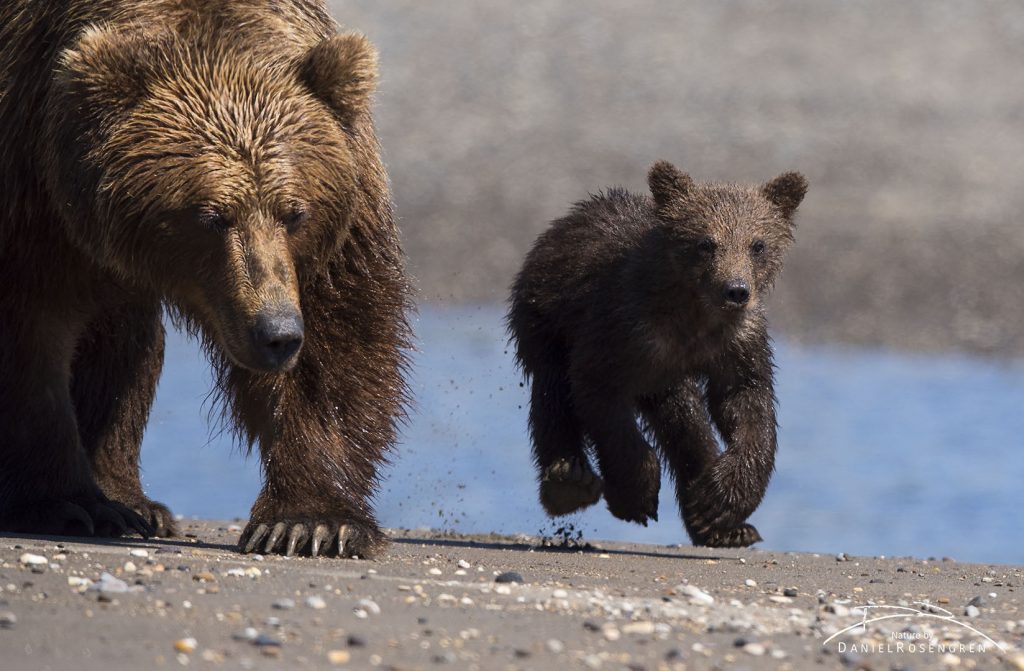
My first encounter, a mother with cubs coming right towards me, just meters away. © Daniel Rosengren
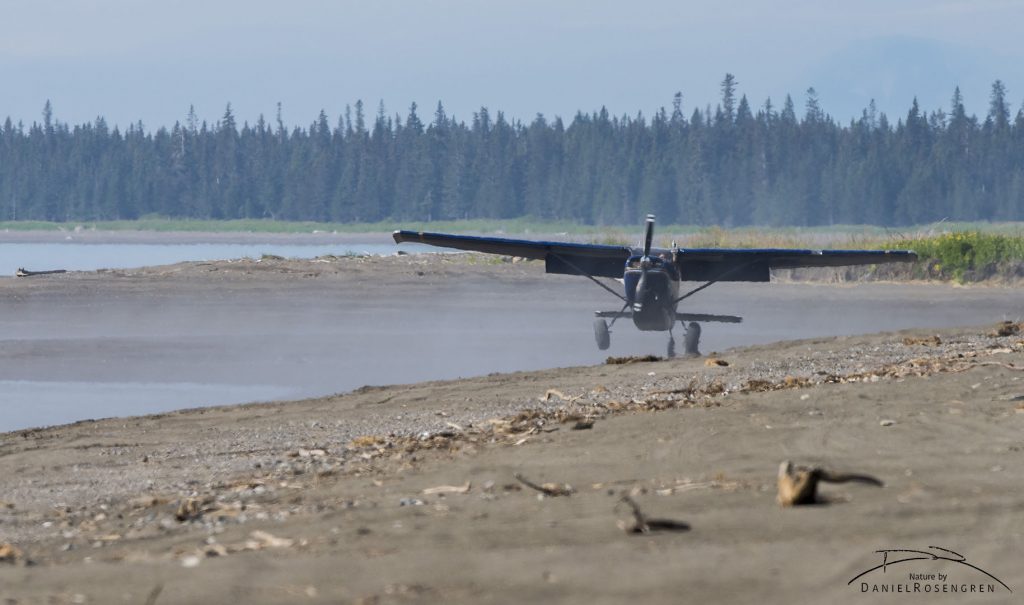
A plane landing at the beach, basically the only way to get there. © Daniel Rosengren
The place is remote, no road reach out there and there are no roads around the lodge either, only a few tracks made by quad-bikes. People generally arrive by plane, as did I. In the absence of an air strip, the small planes have to land on a sloping beach.
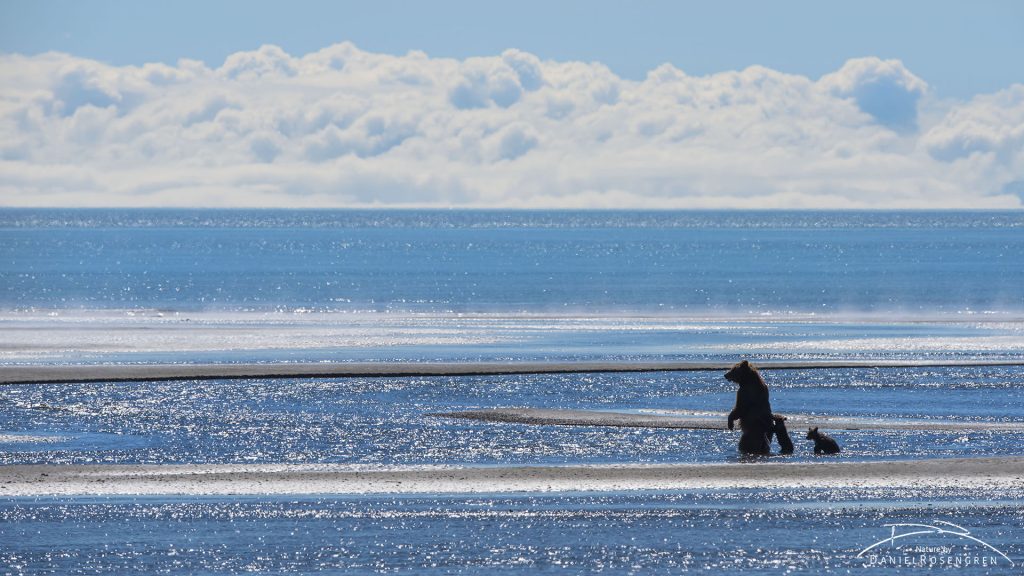
The Grizzly mum has spotted yet another Grizzly mum with two cubs while clamming at the beach. © Daniel Rosengren
My first close encounter with the bears was special. A female with two cubs appeared around a steep sand bank, just a few meters in front of us and started walking more or less straight at us. It was counter intuitive to stay so close to a mother with cubs. But Rick had explained that the females actually prefer to be close to humans. The reason for that is that the large males are, just like lion males, infanticides. This meant that they will kill cubs to force the female back into oestrous, this way they make sure that they can father new cubs with the female. But the big males don’t like the presence of people and the females and young bears have thus learnt that they are actually safer close to humans. But Rick never walks up really close to a bear, that is against the policy, but sometimes the bear chooses to go close to him and his guests. This is of course only true at this place where the bears have a long history together with people, I’d still stay away from a bear mother with cubs anywhere else.

A Grizzly bear enjoying summer. © Daniel Rosengren
At this time of the year, when the berries are not yet ripe and the salmon still at sea, the best chance to see bears is when the tide is really low. At that time, most of the bears come out to take advantage of the exposed ocean floor and dig for clams, a behaviour called clamming. Rick and I were out there too and at one point we stood between two females, both having two cubs each, but not paying much attention to us at all. To take photos at this place was pure joy. Being near such iconic animals as the Grizzly bears in such stunning landscapes it felt almost impossible to take a bad photo. Whatever direction I looked, the view was fantastic.
On my first day at this place, I saw 13 different bears. I hope I will get a chance to get back to this place one day.
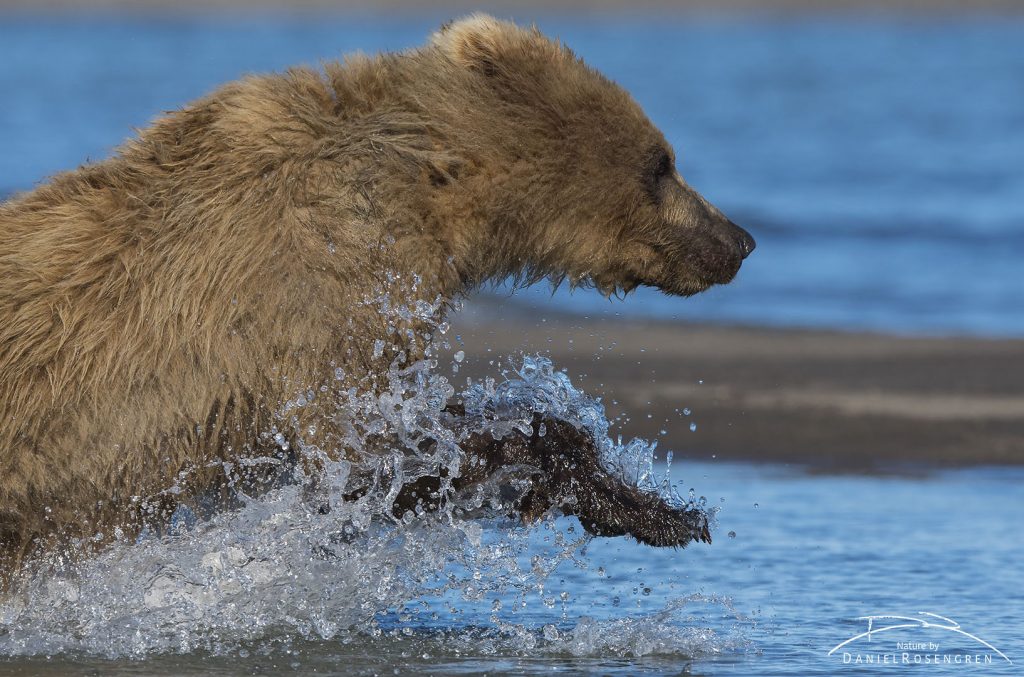
Splish splash! © Daniel Rosengren
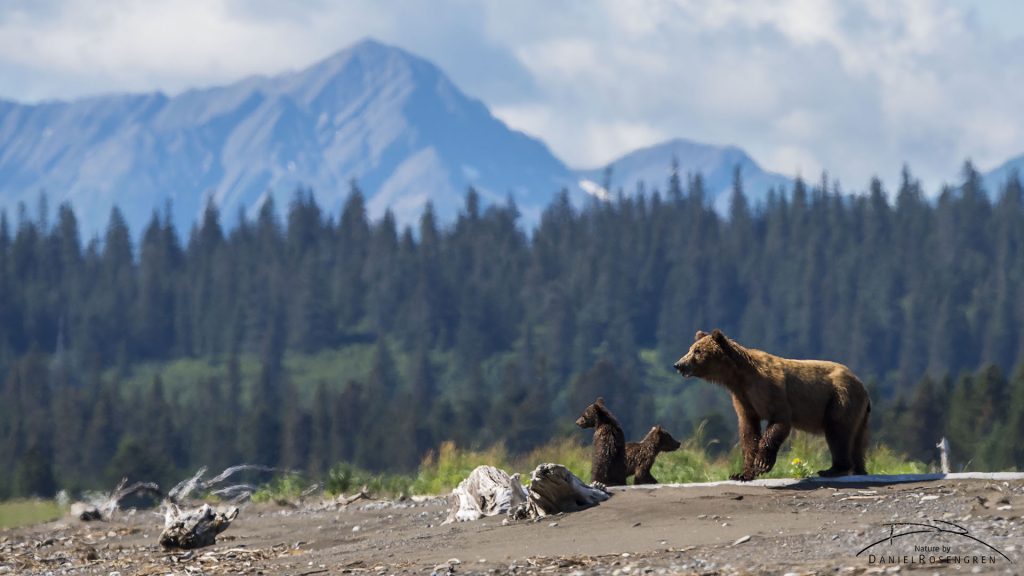
A bear family in a stunning landscape. © Daniel Rosengren
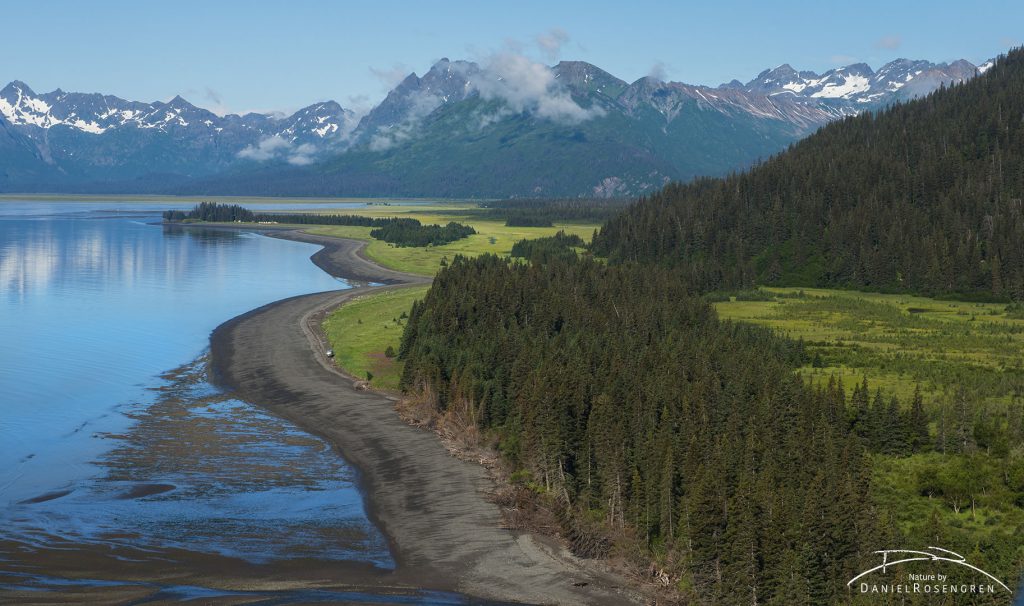
The coast by Silver salmon Creek. © Daniel Rosengren
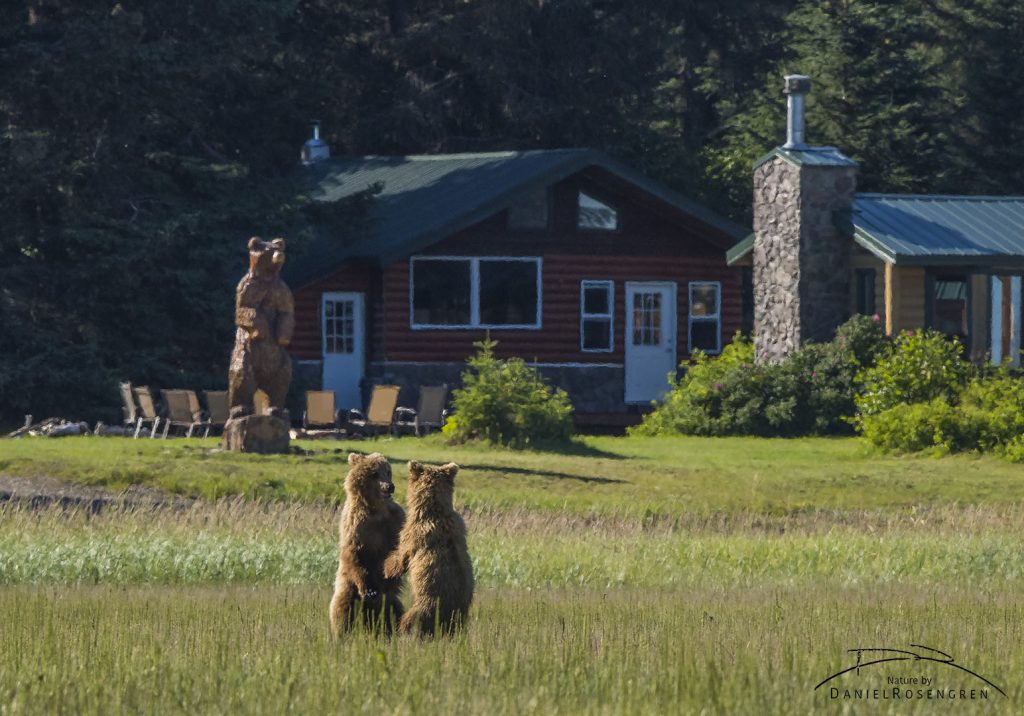
Two Grizzly bears in front of a wooden copy by the Silver Salmon Creek Lodge. © Daniel Rosengren
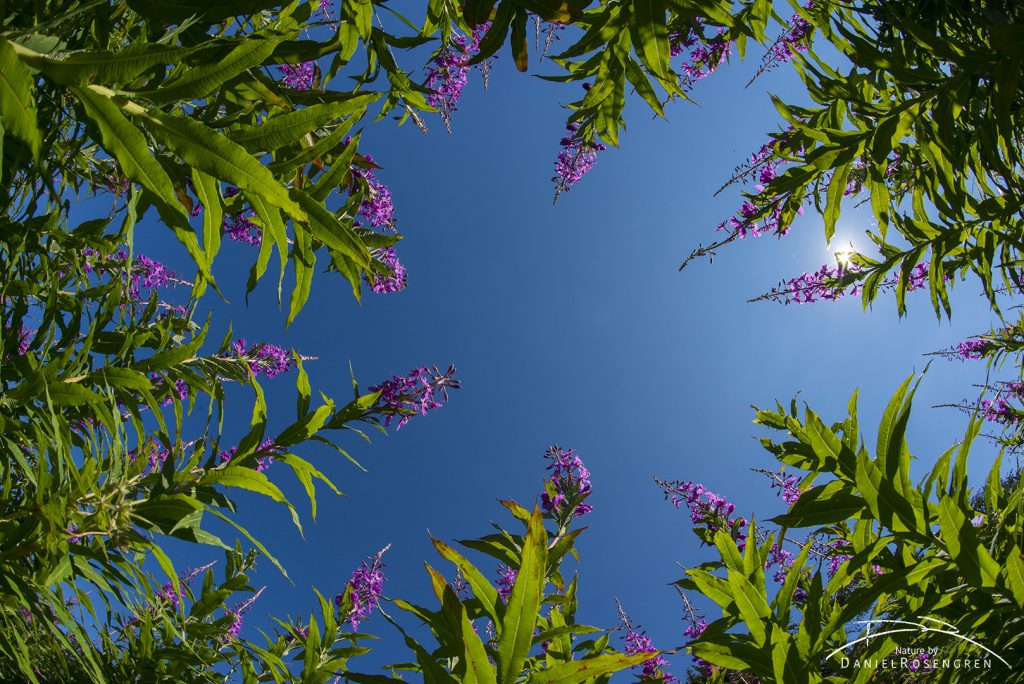
Fireweed is a typical flower in the area. © Daniel Rosengren
See more photos in the Alaska gallery.
